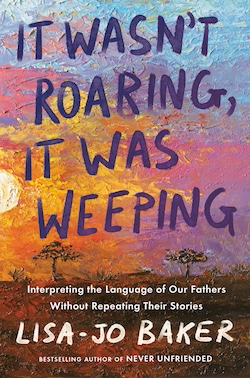Our Past Doesn’t Have to Define Our Future: Dr. Chris Rappazini & Lisa-Jo Baker
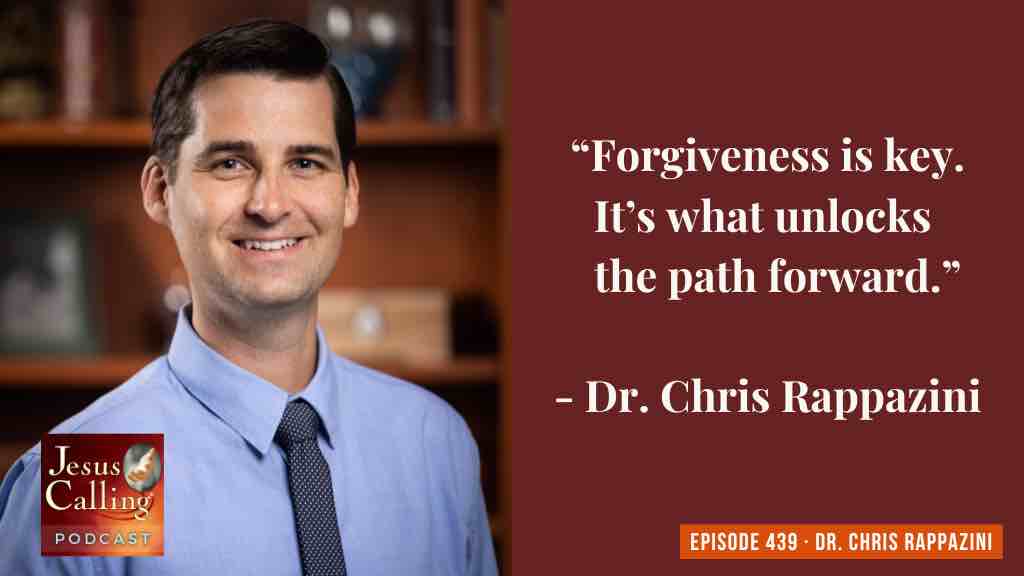
Dr. Chris Rappazini: We can shut other people out and condemn them, or we can feel condemned because of our mess up, because of our mistakes, because of our sin. But the gospel teaches us something so much better and so much greater, that Jesus—who knew no sin—became sin for us. And we then are in Christ and have a new future because we have a new identity.
Our Past Doesn’t Have to Define Our Future: Dr. Chris Rappazini & Lisa-Jo Baker – Episode #439
Narrator: Welcome to the Jesus Calling Podcast. This week, we’ll hear from Dr. Chris Rappazini—a professor of leadership and former pastor—as he shares a deeply personal story through the lens of grief and recovery. Chris reveals how his father’s death propelled his brother into a downward spiral of addiction and estrangement. Yet, amidst the chaos, a narrative of hope and forgiveness emerges, highlighting the profound realization that our past does not define our future.
Later in the episode, we’ll hear from author, editor, and speaker Lisa-Jo Baker. She discusses her awakening to the cycle of anger she risked repeating from her father if she continued to live on autopilot. Through her journey of healing and reconciling with her father, Lisa-Jo illustrates how we can all seek reconciliation and live life to the fullest.
Let’s begin with Dr. Chris Rappazzini’s story.
Dr. Chris Rappazini: My name is Dr. Chris Rappazini. I’m a professor of leadership at Anderson University. I’m also a former pastor and I am a leadership and life coach.
Two Brothers Grieve the Loss of Their Father
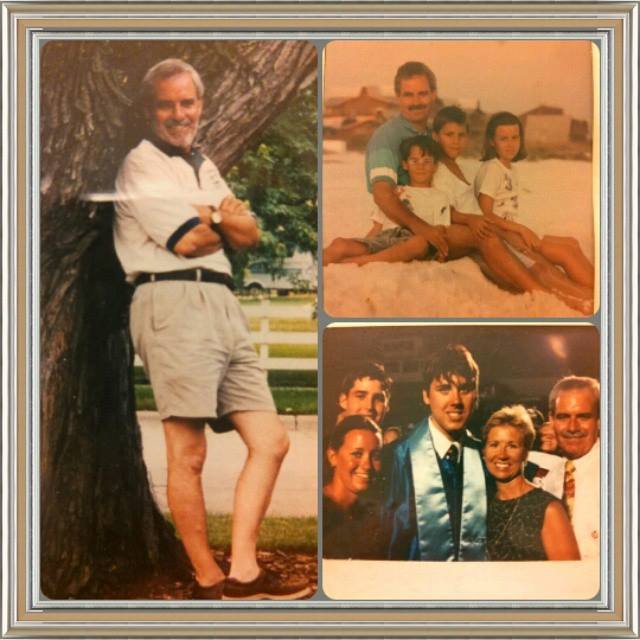
My dad was an excellent father. He was the coach of our little league baseball team, soccer teams. We did a lot of stuff together growing up as kids—not just me, but my brother as well.
Unfortunately though, when my brother and I were teenagers, Dad was diagnosed with a very aggressive form of cancer. And after just a few months, the cancer got the best of him and he passed away. That was a pivotal moment in our lives. My brother and I were only about a year and a half apart. And well, I was at Bible college at the time, just a freshman. I was able to mourn and grieve within the company of Christian brothers and sisters, with professors. I was able to dive into the Scriptures, and there was a church family that took me in, [and I was able to] grieve through prayer and through asking hard questions about God.
My brother, on the other hand, was in college at the time. He grieved and mourned, well, through alcohol, through drugs. Eventually, he dropped out of college and moved to downtown New Orleans. After a short stint there, he moved to Colorado, and my brother became an alcoholic, a drug user, and was eventually homeless, just on a downward trajectory, downward spiral. He burned many bridges with my sister, my mother, other people in our family, and even myself. We lost touch. We hardly spoke. With him being homeless, it was difficult even just to get ahold of him.
Just a few years ago, when our ninety-five year old grandmother passed away, it was my responsibility to let him know that she had died, but I couldn’t get ahold of him. When you’re trying to get a hold of somebody and you try repeatedly for days and days and days and there’s no answer, your mind starts to play tricks on you or your mind starts to go into dark places. And so I started to wonder, What has happened to him? Did he harm somebody else? Did he harm himself? Is he even still alive?
I contacted the only friend that I knew that he had in Colorado, and she had not heard from him in weeks. To my relief, she sent a text message of a screenshot of the local police station’s website in Colorado that mentioned that he had recently been arrested, so at least I knew he was safe and he hadn’t harmed himself or anybody else.
I called the jail and told the person at the desk there the situation: “I need to talk to him, tell him about my grandmother.” And so I got fifteen minutes on the phone with him and he shared his story. He was arrested because he was drunk and had done some stuff he shouldn’t have done.
I think after we both hung up the phone, we both asked the question, “How could it have gotten to this? What in the world is going on? Is it going to get any better? Where do we go from here?” It was there that I realized, Wow, we need to mend this and there’s only one way we can get through this and it’s together.
God’s In The Business of Fixing Broken Relationships
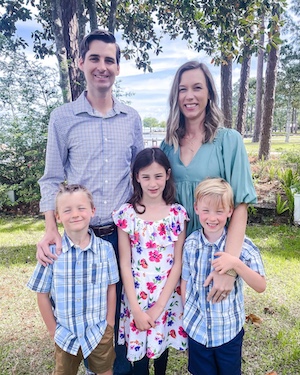
Whenever you have a brother or sibling, a friend, a relative who has just made these choices that you know are so harmful and so wrong, you feel a lot of different emotions. You feel disbelief, like, How could they do this? How could they choose… ? But then you also feel sad. You feel hurt by them. You feel sad because you love them and you see them just ruining their lives and the lives of those around them. Sometimes you also feel disbelief in the sense of thinking, When are they finally going to wake up? When are they finally going to come to their senses? When are they going to hit rock bottom? Sometimes it’s anger too, like when he missed our wedding and hasn’t seen our kids yet. It’s like, How can you be so selfish that you’re only thinking about yourself and you’re not thinking about anybody else? And so there’s a lot of different emotions that you go through.
I think that’s where I realized, Wow, I have some healing to do as well, I’ve messed up as well. Because while his mess up was public—everybody knows it—I mess up too, privately, in my attitude towards him because it wasn’t always loving. It wasn’t always ready and willing to forgive. There was a lot of hurt and anger and frustration and a lack of respect for him.
I stayed home. I didn’t search for him. I didn’t reach out to him until I absolutely had to. But what I was able to learn is that God is in the business of fixing broken relationships, and that’s what He’s been doing in our relationship for the last several years.
“God is in the business of fixing broken relationships, and that’s what He’s been doing in our relationship for the last several years.” – Dr. Chris Rappazini
I mean, we all have issues. We’ve all messed up. And for us to be able to ask forgiveness from those that we’ve hurt the most, I mean, it’s hard to do. And I think the only way you can do it is somehow with the grace of God, with the power and the strength of the Holy Spirit.
“For us to be able to ask forgiveness from those that we’ve hurt the most, I mean, it’s hard to do. And I think the only way you can do it is somehow with the grace of God, with the power and the strength of the Holy Spirit.” – Dr. Chris Rappazini
Forgiveness is Key to Moving Forward
The reality is that people are messy. People have messy lives. They have struggles at home with their spouse, with their kids. When they come to work, they bring their messes with them. And everywhere you go, there are people who have messy lives, so we all need help learning how to move forward after we’ve messed up.
Whenever we have a family member or a friend who has messed up, feelings get hurt because we are emotional beings and that’s how God created us. And God is an emotional God as well. But we can choose to either dwell on the past and dwell on those emotions—and I’m not saying we need to dismiss them or discredit them. They’re still there. But if we’re going to have a future that God wants for us, we have to keep our eyes moving forward. We have to keep our eyes on what we want that relationship to look like, not what it has looked like in the past.
“If we’re going to have a future that God wants for us, we have to keep our eyes moving forward. We have to keep our eyes on what we want that relationship to look like, not what it has looked like in the past.” – Dr. Chris Rappazini
And sure, there’s some things that we need to deal with in the past. But I think the main focus when it comes to our relationships is what do we want our relationships to look like in the future? And what do we need to do today, just one thing today, so that we can get to where we want those relationships to be?
So for my brother and I, what do I want our relationship to look like? Well, I want it to be a relationship where he can come and visit with my family, with my kids. I want us to have a relationship where we can go on a vacation together, where we can have reunions together, and it’s not toxic, where people aren’t walking on eggshells around each other. How do we do that?
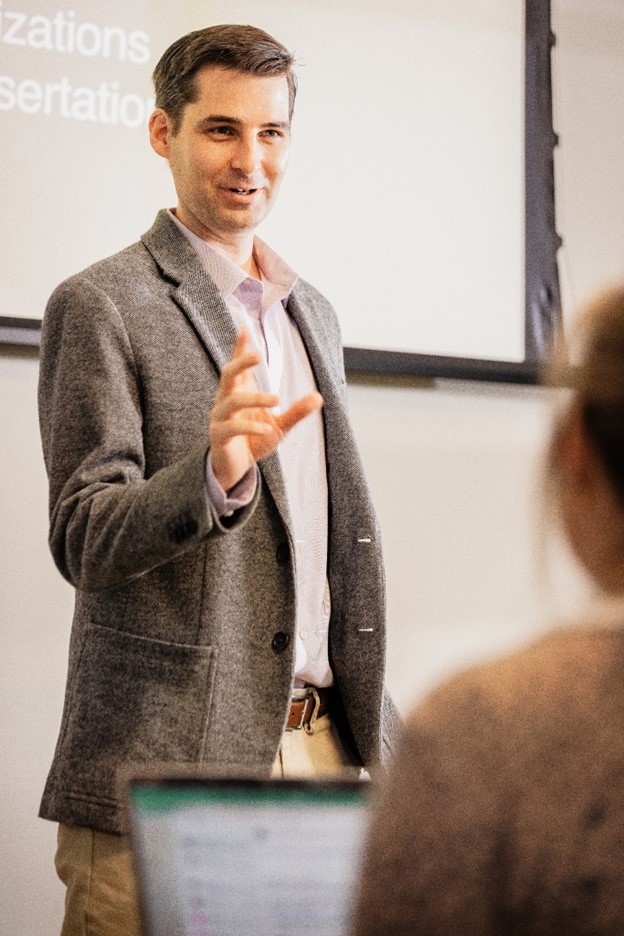
Well, I think one of the main things is it starts with just communicating. It starts with trying to understand one another, understand each other’s world, understand each other’s belief systems, and acknowledge them. It doesn’t mean we have to agree with them, but it means that we can try to understand where they are coming from so that we can relate to them, we can communicate with them so that one day, yeah, we can be in each other’s presence or have conversations that are meaningful, that go deeper than just the local news or the latest weather report. [We can] go into deeper relationships about each other’s longings, each other’s dreams, and what it means to be a family, what it means to be a brother, a sister, a parent, a son, a daughter, and things like that.
Our relationship is a lot better off because while it started with a fifteen minute phone call, then while he was in jail or rehabilitation, it was either no phone calls or a fifteen minute collect phone call—once he got out, it was, Okay, now I can call him whenever I want because he has a working phone.
And he actually penned a letter, mailed it to my mom. He didn’t have to mail it. The assignment was just to write it, but he mailed it to her. And it was him essentially confessing about being selfish and about realizing he had hurt her, that she had been a victim of his addictions, and asking for forgiveness from her. That was huge. I mean, that’s very difficult. And so we need to ask for forgiveness so that that relationship can go deeper, so that it can be restored.
We have to seek out forgiveness. We have to forgive others. We have to ask for forgiveness from God. But oftentimes, the hardest person to get forgiveness from is ourselves. The hardest person to forgive is the person that we see in the mirror every morning, because we feel so guilty and we feel so shameful for what we’ve done and how we’ve hurt people. But if we’re going to move forward, it takes the realization that, I need to forgive myself. I can’t change the past, but I can change the future. And I’m going to move forward as somebody who’s forgiven.
“Oftentimes, the hardest person to get forgiveness from is ourselves. The hardest person to forgive is the person that we see in the mirror every morning, because we feel so guilty and we feel so shameful for what we’ve done and how we’ve hurt people.” – Dr. Chris Rappazini
Forgiveness is key. It’s crucial. It’s what unlocks the path forward.
The Power of Prayer in Our Relationships
Last week, I was visiting my mother at her home in Florida, and I was sitting in her favorite chair and I looked over at the table and what did I see but the Jesus Calling book. It had been read through many, many times because there were her little handwritten notes on the side of the page. And for the last fifteen, twenty years that she has been walking this journey with my brother, and the hurt that she has had over the last several years, and all the negative things that he’s said about her, I’m so relieved to know that she was not alone, but she had Jesus Calling with her every step of the way. And you know, my wife and I, we have the book and I think walking every day with Him—either starting your day, middle of your day, ending your day with God, with Jesus—helps us in every relationship that we have. It helps us to get our minds right with how we’re going to approach the day or how we can reflect on the day. It’s so important to just tap into what God has for us and the grace and the beauty that we have with a life with Him.
It’s my pleasure to now read a prayer from Jesus Listens. The date is August 23rd:
Merciful Jesus,
I ask You to smooth out the tangled-up places in my life, including those in my mind and heart. I come to You just as I am—with all my knotty problems and loose ends. Many of my difficulties are complicated by other people’s problems. So it’s hard to sort out how much of the mess is mine and how much is theirs. I want to take responsibility for my mistakes and sins without feeling responsible for the sinful failures of others. Please help me untangle my complex circumstances and find the best way forward.
I’m realizing that Christian growth is all about transformation—a lifelong process. Some of the knots from my past are very hard to untie, especially those that involve people who continue to hurt me. Instead of obsessing about how to fix things, I need to keep turning toward You—seeking Your Face and Your will. As I wait with You, help me to relax and trust in Your timing for smoothing out my tangled-up places. Show me how to live with unresolved problems without letting them distract me from You. I rejoice that Your abiding Presence is my portion— and my boundless blessing!
In Your magnificent Name,
Amen
Narrator: To learn more about Dr. Rappazini, please visit www.faithfulstepsforward.com, and be sure to check out his book, Moving Forward After Messing Up, at your favorite retailer.
Stay tuned to Lisa-Jo Baker’s story after a brief message.
Available Now: The Jesus Calling Commemorative Edition
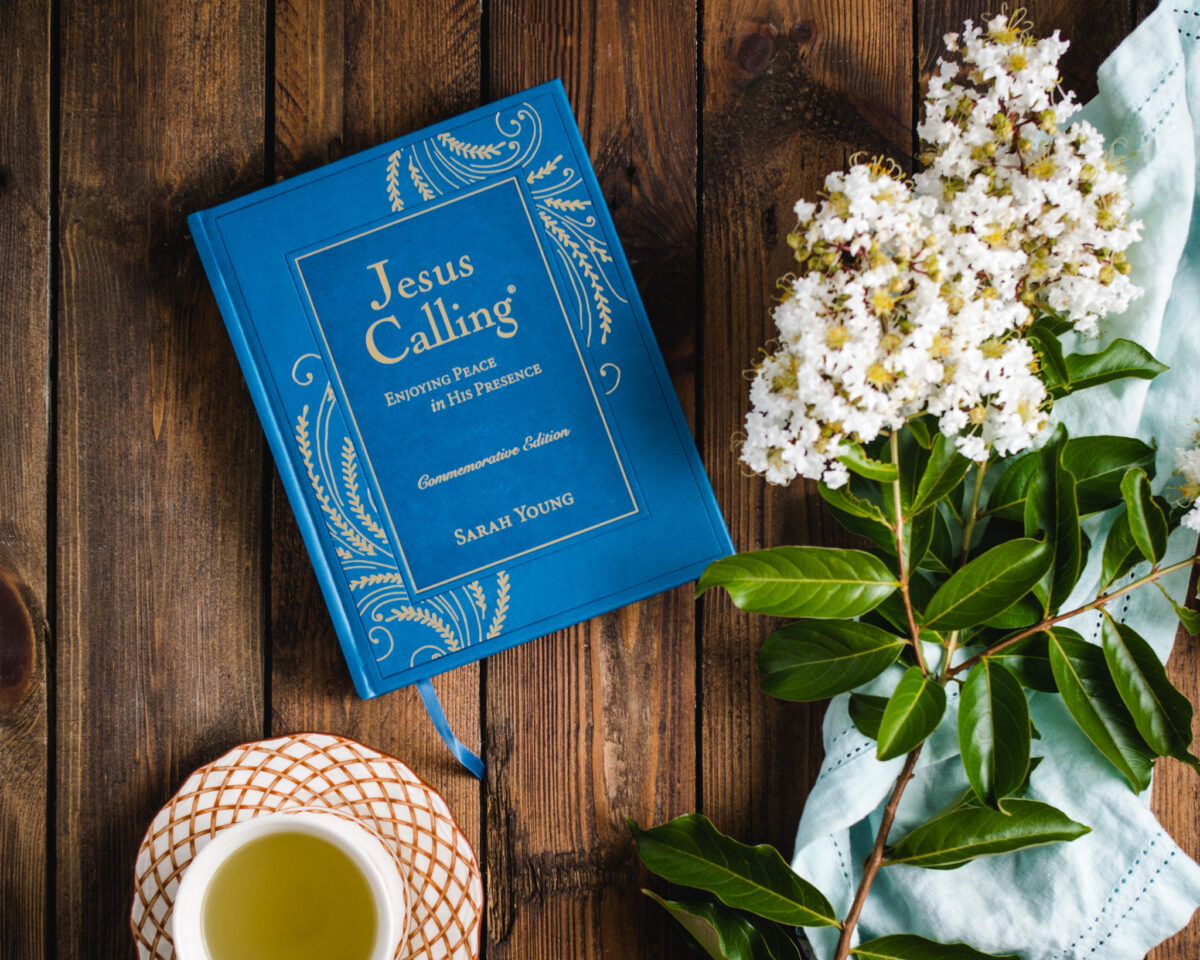
For over twenty years, readers have discovered the joy of spending time in the presence of the Savior with the much-loved daily devotions in Jesus Calling.
Now, in the Jesus Calling commemorative edition, you’ll feel comforted by words of hope and encouragement, and be reassured of Jesus’ unending love through author Sarah Young’s words of gentle guidance that are rooted in Scripture.
In this deluxe edition, you’ll find samples of Sarah’s original handwritten devotionals, twelve new devotions she penned before her passing, letters from Sarah to readers for each month of the year, and a touching tribute from Sarah’s daughter.
Experience a deeper relationship with Jesus as you savor the presence of the One who understands you perfectly and loves you forever. Find the Jesus Calling commemorative edition today at your favorite retailer or get 30% off your purchase at www.faithgateway.com.
Our next guest is author, editor, and speaker Lisa-Jo Baker. Lisa-Jo grew up in Zululand, South Africa, where her father—a dedicated missionary doctor—stood against apartheid, but also struggled with a temper that left lasting wounds. After her mother’s early death, Lisa-Jo distanced herself from her father and the pain of their past—until she recognized similar patterns in herself. Through her faith, she began a journey of healing, ultimately finding reconciliation with her father and forging a new, grace-filled legacy for her own family.
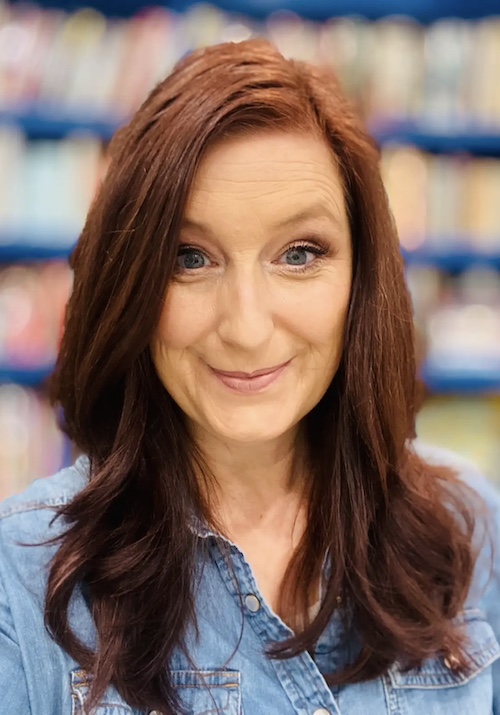
Lisa-Jo Baker: I’m Lisa-Jo Baker. I am a total word nerd. I’m an acquisitions editor for HarperCollins Christian Publishing. I’m a writer, speaker, a podcaster. Probably most significantly, I’m a mom of three very loud and opinionated teenagers. And stories are my favorite way to understand the gospel.
Growing Up in Zululand
I was born in Zululand in South Africa, which is the home of the Zulu people. My dad was a medical doctor and he was serving in a remote mission hospital in Zululand, where I was born. The only two doctors working there at the time were my father—who had just graduated medical school—and his best friend, who was just one year senior to him. My dad had studied under Dr. Christiaan Barnard, who is the first heart surgeon ever in the world to successfully perform an open heart transplant on a human patient. My dad had been one of his residents and could have gone anywhere afterwards, but felt that the Lord called him to work on the mission field.
So that’s where I was born. I grew up speaking Zulu. And, at the same time, the strong forces of apartheid were rising all around us. And my father, being a man of faith, was trying to push back against what the government was doing as it segregated people. Because my father actively opposed the apartheid state, he wanted to move off the whites-only compound to go and live alongside his Zulu friends and community. The secret police paid him a visit and threatened our family and threatened the families around us. They said that if he were to move and build a house in the Zulu community, that that house would burn down. There were constant threats against his friends in the Zulu community because of our friendships, and it’s one of the reasons that they ended up leaving the mission station, because there was just a belief that if we tried to pursue friendship in the way that we understood it should be, it could, in fact, endanger our friends. So I always think my mom was a very brave woman to go into the bush knowing she was going to give birth to me in this very remote, rural, mango country.
A Deep Loss Fractures a Family
I lost my mom a week to the day after I turned eighteen, so it felt like the official end of my childhood. She had been sick with leukemia for two years, so she’d actually been away from home for two years in hospital before she passed. But when she passed and I was left with my dad, it felt like a period of reckoning. I wasn’t sure what that would be like to suddenly have no balance to his parenting.
When he was passionately for our good, he was the most exciting and amazing and empowering parent to have around. But when he lost his temper, there was no one there to balance him out anymore. And it felt like God had just made a big mistake, that He had left me with the wrong parent. I didn’t know how to navigate it, and as soon as I could, I ran away from home in the most respectable way you can. I went to college in the States. I put an ocean between my father and I.
The beauty of Jesus that I’ve discovered is that, as we know, God is not limited by time. This is what’s so powerful about Him. So I was able to sit with Jesus and say to Him, “Here’s what happened to me when I was sixteen,” and have Him be in that memory with me, and enter into the pain and hold the pain and acknowledge the pain. Because when I think about forgiveness, really what it is, it’s a debt that’s owed to you. For me, it was like a debt of pain. This is why you were wounded. There’s this debt owed you. Are you willing to write it off, to let go of that pain? And the only way I could do it is because it was so powerful to have the Lord bear witness to the pain and say to me, “I see it. I see what is owed you, Lisa-Jo.” And then to say to me, “And look, Lisa-Jo, here’s the debt of pain I held on your behalf at the cross.” All of the things that I have caused Christ, that He was willing to hold and then write off for me.
“The beauty of Jesus that I’ve discovered is that, as we know, God is not limited by time. This is what’s so powerful about Him.” – Lisa-Jo Baker
As I’ve gotten older, one of the things I love about God is that He describes himself as the God of Abraham, Isaac, and Jacob. He is a generational God. And in Scripture, we are always introduced to Him as a God who acts across generations. So He cares very much about what happened in the past, how it’s impacting the present, and how it will affect the future. And so it was really leaning into that and being able to talk to Him first, before I could talk to my dad about what my childhood had been like. And my encouragement to people is that it doesn’t require the person who’s wounded you to participate in order for the God who spans those generations to heal you.
“He is a generational God. And in Scripture, we are always introduced to Him as a God who acts across generations. So He cares very much about what happened in the past, how it’s impacting the present, and how it will affect the future….it doesn’t require the person who’s wounded you to participate in order for the God who spans those generations to heal you.” – Lisa-Jo Baker
And that was so significant for me, because there were many years in my relationship with my dad where I couldn’t talk to him about what had happened, mostly because I was too afraid that he would deny it or he would say I was exaggerating, or that isn’t how he remembered it. Or maybe he didn’t even remember it at all. Or what if he diminished it? For me to heal and for me to be a whole parent to my kids, I actually had to go back.
Seeing Patterns From Our Parents Play Out In Our Lives
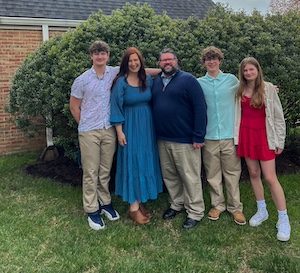
Anyone who is a parent has definitely had that moment where you just have this shocking, out-of-body realization that you are somehow now reenacting the worst parts of your own parents’ behaviors toward you, and it is just a horrifying moment when it happens.
There was a moment where I stood face to face, eyeball to eyeball, with my ten-year-old son and just opened my mouth and let a freight train come screaming out. It was one of those out-of-body moments. I screamed so hard and so long and so violently at him that my throat physically hurt. And in the midst of this almost out-of-body rage, this one thought dropped ice cold into my veins, and I just knew I am my father. And yet I actively chose in that moment to keep being angry, to keep screaming.
Afterwards, it was such a shock to my system and I realized I can’t just be on cruise control. This can’t be what I inherit. This cannot be a legacy I pass down, because when I looked at my kid, I saw in his eyes a reflection of myself at that age. I could not believe I was reenacting with him what I had inherited. It was a terrifying moment, and I knew if I didn’t do something different, he would grow up to have all the same memories I had, and I just had to believe that I could write a new story for him. So it was out of a sense of desperation and failure that I realized I needed to pay attention to where I had come from. I needed to stop and pull off onto the side of the road and figure out the story I had inherited, because I was really determined to write a new one.
“I needed to stop and pull off onto the side of the road and figure out the story I had inherited, because I was really determined to write a new one.” Lisa-Jo Baker
Often we seem to treat what we’ve inherited—whether it’s a hurt or a spiritual legacy we’ve inherited—as something that’s inevitable. We just don’t even pay attention to it anymore. But I like to remind people that when you go to the doctor, you sit down and they give you those incredibly long and boring forms where you have to fill out your maternal and your paternal side, every kind of potential disease you’ve inherited. It’s a very depressing exercise. Nobody wants to think about that stuff. But we do because we know that that literally has an impact on your physical health. What came before, like two generations back, is affecting your physical health today.
And it didn’t require the participation of my dad at all. That was something that Christ and I could do together. And the weight of healing in that moment, the weight of freedom, the sense of the majesty of our God who is outside of time… traveling back to my most wounded moments, bearing witness, coming alongside me as I release that debt of pain, and then sitting with me in my freedom actually impacted the present me in my forties. So much so that it changed the kind of parent I’m able to be to the next generation.
A Father and Daughter United
And so for me, when my dad and I were finally able to reconcile, it’s because he was willing to lay down his defenses, to not bite, to not sting, to not prick, to let me come close, to listen to me about how I was hurt. And I think for family trees to heal, we have to be willing to lay down our defenses. It doesn’t happen all at once. It happens slowly over years between generations, because we have a God who is so adamant, passionate about forgiveness, about reconciliation, about redeeming generations, who wrote a new plot line out of an old bloodline.
“I think for family trees to heal, we have to be willing to lay down our defenses. It doesn’t happen all at once. It happens slowly over years between generations, because we have a God who is so adamant, passionate about forgiveness, about reconciliation, about redeeming generations, who wrote a new plot line out of an old bloodline.” – Lisa-Jo Baker
I love that my dad has the most beautiful relationship with all three of my kids, and it is evidence of God’s redemptive work in his own life. But one of the things I know to be true is that we can’t force change in the people who’ve hurt us. We can’t manipulate it. We can pray for it, but it’s their responsibility to change. The Lord did an amazing work in my dad’s life because he was willing to let Him in. One of the most beautiful things for me now is watching my kids, who push my buttons, push my dad’s buttons, and my dad react completely differently than he did with me. And it is the kind of generational grace gift that is really only possible by a living, redemptive God who writes new stories for us.
My dad is seventy-seven and I am fifty, and God is still rewriting parts of my literal babyhood and teenagerhood. It’s never too late. It’s not over. You’ve still got time to write a new story.
I have Jesus Calling right here on my bookshelf behind me, and I love it because just the title itself, Jesus Calling… that Jesus is the initiator. I just know that He is coming, looking for me, that He’s calling after me. It is so deeply meaningful. As someone who grew up having lost her mom, feeling often estranged from her dad—to know that there is a God who is always looking for me, who misses me, who wants to talk to me, that is a lifeline. To know that no matter where I am, there’s a God who comes calling? My goodness, it’s so beautiful. Every time I read it, I’m imagining that this is a conversation, right? This is a conversational God. He’s a storyteller. He is interactive. He isn’t a passive god. Every time I read it is just a wonderful way of having another tangible reminder of His voice in my life.
Narrator: To learn more about Lisa-Jo Baker, you may visit www.lisajobaker.com, and be sure to check out her latest book, It Wasn’t Roaring, It Was Weeping: Interpreting the Language of Our Fathers Without Repeating Their Stories, at your favorite retailer.
If you’d like to hear more stories about healing from brokenness, check out our interview with Rosie Rivera.
Next week: BeBe Winans
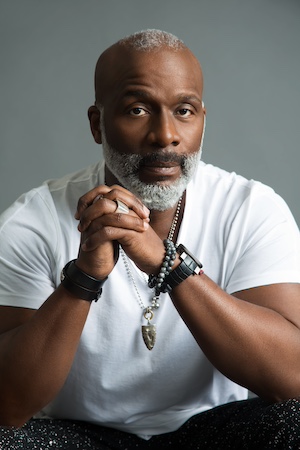
Next time on the Jesus Calling Podcast, we’ll hear from legendary singer BeBe Winans, who shares tales from his storied career, and how through every mountain and valley, he turned to God to help him find a way forward.
BeBe Winans: I learned early on that the experience that God has brought me through—it’s not just for me, but it’s for other people that are going through the same things or will go through the same things that I have endured and God has brought me through. And over the years, I understood that the more God does for me, the more I need to be closer to Him.
![Jesus Calling podcast 439 featuring Dr. Chris Rappazini - Moving Forward After Messing Up [Cover] PC Courtesy of Dr. Chris Rappazini](https://s32213.pcdn.co/wp-content/uploads/2024/11/Jesus-Calling-podcast-439-featuring-Dr.-Chris-Rappazini-Moving-Forward-After-Messing-Up-Cover-PC-Courtesy-of-Dr.-Chris-Rappazini.jpg)
